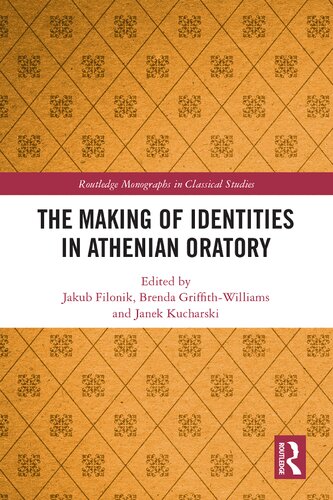

Most ebook files are in PDF format, so you can easily read them using various software such as Foxit Reader or directly on the Google Chrome browser.
Some ebook files are released by publishers in other formats such as .awz, .mobi, .epub, .fb2, etc. You may need to install specific software to read these formats on mobile/PC, such as Calibre.
Please read the tutorial at this link. https://ebooknice.com/page/post?id=faq
We offer FREE conversion to the popular formats you request; however, this may take some time. Therefore, right after payment, please email us, and we will try to provide the service as quickly as possible.
For some exceptional file formats or broken links (if any), please refrain from opening any disputes. Instead, email us first, and we will try to assist within a maximum of 6 hours.
EbookNice Team

Status:
Available5.0
34 reviewsFocusing on extant speeches from the Athenian Assembly, law, and Council in the fifth–fourth centuries BCE, these essays explore how speakers constructed or deconstructed identities for themselves and their opponents as part of a rhetorical strategy designed to persuade or manipulate the audience.
According to the needs of the occasion, speakers could identify the Athenian people either as a unified demos or as a collection of sub-groups, and they could exploit either differences or similarities between Athenians and other Greeks, and between Greeks and ‘barbarians’. Names and naming strategies were an essential tool in the (de)construction of individuals’ identities, while the Athenians’ civic identity could be constructed in terms of honour(s), ethnicity, socio-economic status, or religion. Within the forensic setting, the physical location and procedural conventions of an Athenian trial could shape the identities of its participants in a unique if transient way.
The Making of Identities in Athenian Oratory is an insightful look at this understudied aspect of Athenian oratory and will be of interest to anyone working on the speeches themselves, identity in ancient Greece, or ancient oratory and rhetoric more broadly.